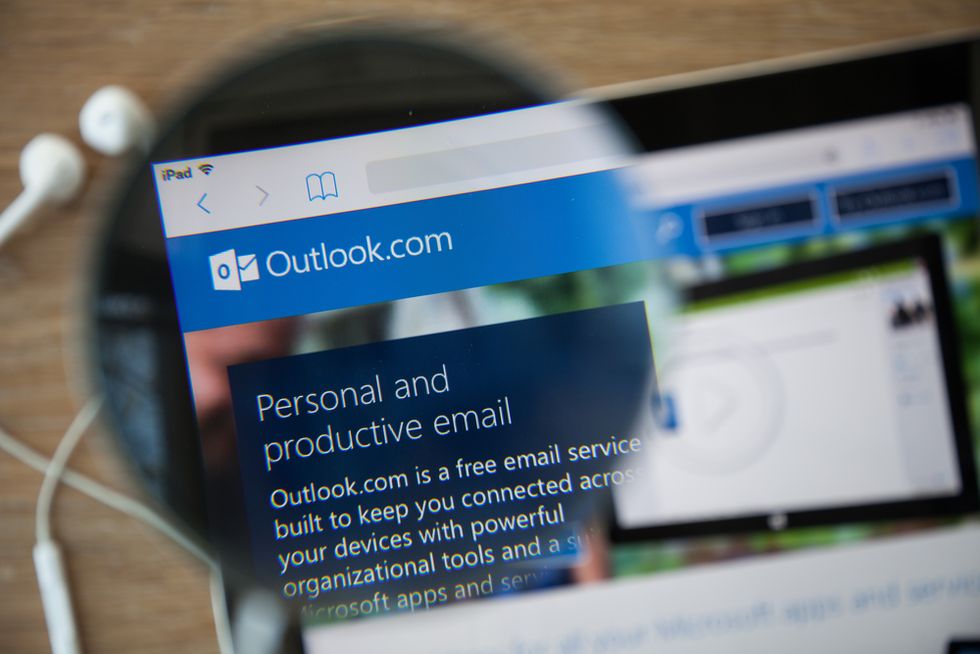
Shutterstock

As technology advances, so does the government’s effort to gain access and control over it. What limits should apply to government is precisely the issue a federal court will soon decide. This is a case that may make it to the U.S. Supreme Court in the next year or two.
This case involves the Bill of Rights. The Fourth Amendment to the Constitution states the following:
The right of the people to be secure in their persons, houses, papers, and effects, against unreasonable searches and seizures, shall not be violated, and no warrants shall issue, but upon probable cause, supported by oath or affirmation, and particularly describing the place to be searched, and the persons or things to be seized.
The facts of this case are very important to understand whether the government is complying with the U.S. Constitution. The controversy stems from an investigation by the Justice Department where they served a warrant to get an email that Microsoft stored in a subsidiary company in Ireland. The warrant never alleged that the target was a U.S person, nor did it specify a “place” in Ireland to be searched.
The emails sought by the Justice Department were stored information on a cloud computing system on servers stored on the island nation of Ireland. If the information requested were a piece of paper instead of a byte of data, the DOJ would be forced, by treaty obligation, to request that the Irish government obtain a warrant on their behalf to obtain the information. Such requests among allies are commonplace and are not much of a hurdle for the government to jump over. Yet, somehow, Microsoft has lost this case in the lower courts and may lose again in the Second Circuit Court of Appeals as soon as this month.

This case comes down to the idea of whether an email is merely a possession of the company who hosts email conversations or the person who wrote and sent the email. The idea that the government can compel all communications by merely producing a subpoena to a phone company, Internet based communications company or company providing email services, is offensive to the Bill of Rights mandate that one’s personal papers and communications come with them privacy protections.
Even in an age of government snooping, the attempt by the DOJ to grab jurisdiction of every byte of data stored on cloud computing systems, has raised the concerns of members of Congress traditionally not known as civil libertarians.
A bipartisan group of senators are attempting to pass legislation known as the Law Enforcement Access to Data Stored Abroad (LEADS) Act to prevent an extraordinary abuse of power by the DOJ.
In a race against time, the group led by Sen. Orrin Hatch (R-Utah), Sen. Dean Heller (R-Nev.) and Sen. Chris Coons (D-Del.) are trying to establish rules balancing the needs of law enforcement to obtain the contents of electronic communications with privacy protections for citizens in the digital age. The House of Representatives also has the same version of the LEADS Act sponsored by Reps. Tom Marino (R-Penn.) and Suzan DelBene (D-Wash.).
This case has not been kind to the Fourth Amendment. A federal district court in New York ruled for the government suggesting that as an American company that wholly owns the Irish subsidiary, a simple domestic warrant is enough to get emails. Last July the Second Circuit Appeals Court agreed, and in September, Microsoft asked to be held in contempt of the court so it could progress to the Supreme Court.
The ramifications of these decisions are critical for privacy rights, jurisdictional limitations of government power and the ability for American companies to compete abroad. If the American courts force Microsoft to produce emails that reside outside the country, every American company that hosts email will be economically damaged. Especially after the National Security Administration scandal, no sane foreign national would use American companies to host email for fear that they will have zero privacy protections because the American government believes that the emails are the property of the company rather than the person sending the emails. And, the nationality of the sender seemed not to have any impact of the DOJ's arguments.
Unless overturned by the Supreme Court, the DOJ's argument that most anything stored on the cloud-based computer systems even by foreign nationals on servers stored outside the United States, falls under their power, will stand. Not wanting to rely on nine people in black robes to determine the privacy rights of the American people, the LEADS Act was introduced.
It's no secret that for the past seven years, President Barack Obama has engaged in an open assault on Americans’ privacy. From threatening to indict reporters who refuse to release their sources to DOJ's seizing two months worth of phone records from Associated Press reporters, the Obama administration will go down in history with one of the worst records for domestic civil liberties. The effort to grab control of the cloud computing systems is just the latest chapter in a sad era of American constitutional liberties.
–
TheBlaze contributor channel supports an open discourse on a range of views. The opinions expressed in this channel are solely those of each individual author.